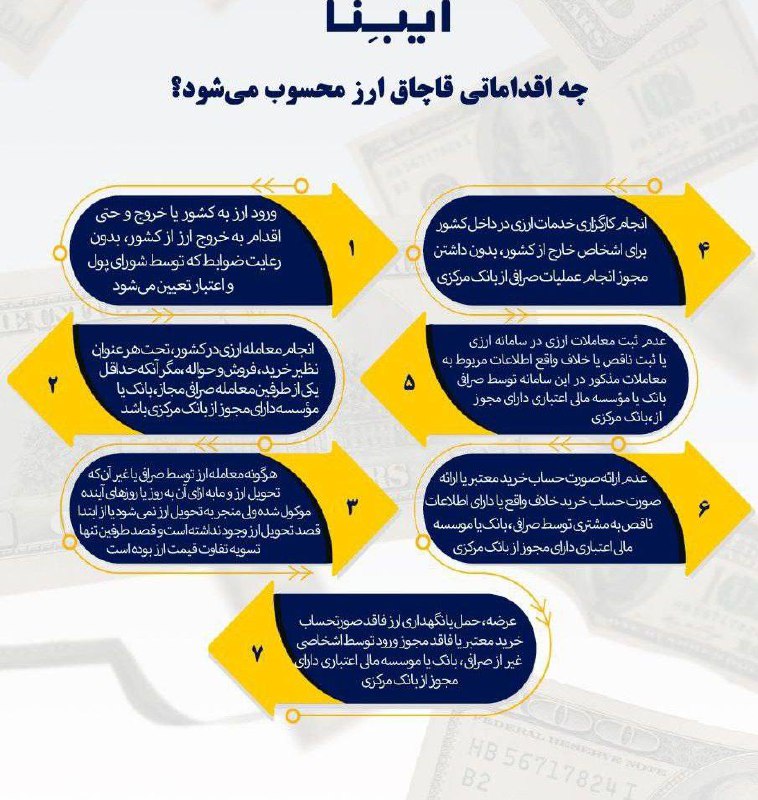What actions are considered currency smuggling?
.
Entry of foreign currency into the country with the departure of foreign currency from the country, without complying with the relevant rules determined by the Money and Credit Council within the limits of legal powers.
Any attempt to withdraw foreign currency from the country without complying with the relevant rules determined by the Money and Credit Council within the limits of legal powers.
Carrying out currency transactions in the country, under any title such as purchase, sale, remittance, exchange or settlement, unless at least one of the parties to the transaction is an authorized exchange, a bank or a financial and credit institution licensed by the Central Bank. The ruling of this paragraph includes cases where at least one of the parties is in the country at the time of the transaction.
Transactions that take place with the permission of the Central Bank and within the limits set by this bank by persons such as importers and exporters and traders in commodity exchanges, are excluded from the scope of this clause and clause “T” of this article.
Any currency transaction by an exchange or otherwise, where the delivery of currency and its payment is postponed to the next day or days, but does not lead to the delivery of currency, or there was no intention to deliver currency from the beginning, and the intention of the parties was only to settle the difference in the price of the currency.
Brokering foreign exchange services inside the country for people outside the country, without having a license to carry out exchange operations from the Central Bank.
Note- A broker is a person who receives payment for the traded currency in the country.
Non-registration of foreign exchange transactions in the foreign exchange system or incomplete or false registration of information related to said transactions in this system by an exchange, bank or credit financial institution licensed by the Central Bank.
Failure to provide a valid purchase invoice by providing a false or incomplete purchase invoice to the customer by an exchange, bank or credit financial institution licensed by the Central Bank.
supply, transportation or storage of currency without a valid purchase invoice or without an entry permit by persons other than an exchange, a bank or a credit financial institution licensed by the Central Bank. The entry of foreign currency into the country up to the limit set by the central bank is excluded from the scope of this paragraph. The owners of foreign currency, regarding the currencies that they had before the entry into force of this law, and that are in excess of the amount of exemption for portable currency declared by the Central Bank and do not have a valid invoice, are required to register information in the system within three months.
This post is written by shadmanamini
